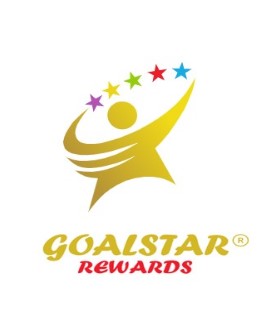Planning and Setting Goals for Kids

“Setting goals is the first step in turning the invisible into the visible.” - Tony Robbins
Planning and setting goals for kids is important for improving their confidence and building self-esteem. In addition, it also teaches them to improve focus and make better decisions.
You may have experienced the fun of creating a star chart for your family when they were young. It would have been hung up in the kitchen or stuck on the fridge to be in easy reach for your young children. You would have put a fun sticker as your child completed each small goal. This would have definitely put a smile in their faces.
But what do you do when your children outgrow the family star chart. What happens when their goals change as they start to grow and there are more things to juggle both for them and for yourself.
Here are a few tips to help in setting goals for kids aged seven years and over. As they start to build up more responsibility and become more independent, the emphasis should be on the process rather than outcome. Outcome will follow if the process is mastered. In doing so, your child will achieve success no matter what the nature of their goal is.
In planning and setting goals for kids, make it easy on yourself and your child and start with something simple.
Start planning goals for kids with existing routine
Look for an area that you child may already be apply goal setting behaviour. Once you have identified this, use it as an example of how other goals can be set and achieved. For example, this could be completing homework after school or feeding a pet.
Explain what goal setting is all about
If you child is not familiar with goal setting, take the time to discuss what goals are important for your child to achieve. This should be something they feel passionate about. Once you have worked out with your child what they feel passionate about, assign them a related task. This could be anything from setting the table and clearing up after meals or working through a topic in Maths. Complete the task with the child to help them learn the way to do it and gradually let the child take over the full task.
Give your child a taste of success
Set up a fun goal that will easily be achieved for the child to achieve in a short time frame. As a guideline, this should be within a few days for older children or within a few hours for younger ones. Doing so, will help in keeping their focus on the goal so it is achievable.
Track progress and reward your child for milestones achieved
Work out how to keep track of the goal. You can do this by writing it down or recording it somewhere visible to the child. Once this goal is achieved, you can plan a surprise for the child. The nature of surprise can be anything like a special day out with the child or play date with one of their friends.
Gradually increase diversity and scope of goals for kids
As the child builds their confidence in goal setting, you can expand to other areas. You may expand goal setting for school and sporting activities. Longer term goals might need to be broken down into smaller goals. For example, if the child wants to lift their grade in English or Maths, sit with the child to work out what they might need to do over the next 6 to 8 weeks of the school term.
Share your own goal with your child
Share your own goals with your child and your plans for accomplishing them. Perhaps you’re saving for a family vacation or want to have more time to read or develop a new hobby. This will help your child learn from your role model behaviour and help them understand goal-setting strategies.
These simple steps can help the child learn to plan and develop goal setting behaviour to achieve an end result. If the child fails to achieve the goal, it is important to keep encouraging them to keep trying. To keep the focus alive, always remind them why they are doing it.
Here is an interesting article from Big Life Journal on setting goals for kids.
GSR Tips & Tricks
How best to use Goalstar Rewards to help your child achieve their goals? How It Works
Goalstar Rewards offer 4 weeks free trial for each child. Register to Start 4 Weeks Free Trial!
 \
\
